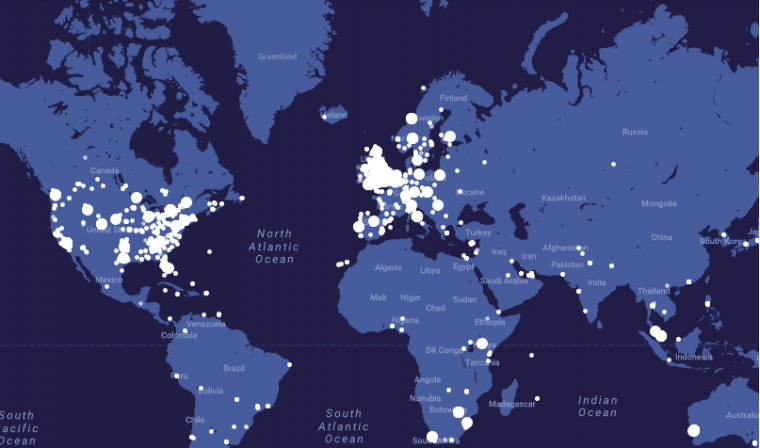The secret to Christian unity? Maybe it's really simple...

Since the Church first split in the 4th century there have been plenty of attempts to bring it back together. The splits have sometimes been about politics and personalities. Yet most often, it's been doctrine that's forced Christians apart.
The Reformation, whose 500th anniversary we mark this year, may have turned into a political conflict when kings and emperors got involved. But at heart, it was Martin Luther's theological objections to the teachings of the Church that lit the spark.
This indicates that the answer to division should probably come about via theological discussion. Stick a load of learned theologians from both sides of a divide into a room and give it long enough. They'll hopefully come up with some form of words that pleases both sides and then we can all become friends again.
Although there are some examples of this working to an extent (Roman Catholics and Lutherans now say they basically agree on justification, one of the main doctrinal divides of the Reformation), there are other examples of theological dialogue which are stuck in the long grass.
In fact, I don't think conference rooms full of giant theological minds is the right way to rectify division. I suspect a far better option is to actually do things with Christians who are very different from us.
There are some wonderful practical examples happening on both a local and national scale. We all know churches that are reaching across the denominational divides to take part in organising food banks, street pastors and a thousand other brilliant initiatives.
I'm fortunate enough to be able to see up close the great work that is done by a couple of charities with which I'm involved. They have staff, volunteers and beneficiaries who are of different denominations, have different spiritual practices and attend churches of all shapes and sizes. But something bigger unites them. In my experience, the advantage of meeting together and working together over a common cause means that when it comes to discussing the differences, they always seem much smaller.
Another way in which we can break down the barriers is prayer. That's why it's so heartening to see the number of different churches and organisations who've signed up to be part of the 'Thy Kingdom Come' initiative. Begun last year, the idea was to get churches praying in the days between Ascension and Pentecost (a week on Sunday).
The Archbishops of Canterbury and York began the initiative and it might have been expected that it would mainly be Church of England churches taking up the call. But Christians of many denominations took part. This year has seen small chapels and massive cathedrals sign up, as well as a wider array of church traditions and denominations.
In the same way as acting together, praying together breaks down barriers. Anyone who's ever been to a place like Taizé, in France, which prides itself on the unity it promotes, can speak to the power of the regular prayer sessions to break down division.
Unlike during a discussion or argument where our bodies face each other, when we pray, our bodies are positioned so as to focus on God. This simple, physical act means we often are facing in the same direction.
Praying together, especially the powerful words of the Lord's Prayer, which is shared by all Christians across space and time reminds us that even though we differ in many ways we also share much in common.
Archbishop Justin Welby said in relation to the event that, 'In praying "Thy Kingdom Come" we all commit to playing our part in the renewal of the nations and the transformation of communities.'
He's really onto something here. If we want to truly transform our communities, it will only come with God's help. However, the transformation that goes on in ourselves and our neighbour may be of a kind that wasn't intended when we sat, knelt or stood to pray together. The transformation of ourselves, of our relationships and of our differences into things that can be transcended. Churches all around the world are trying it this week... Why not join them?











